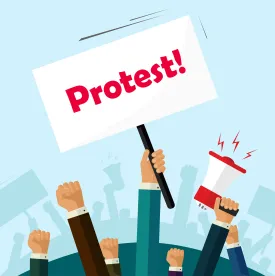Two recent decisions illustrate that the provision of benefits to employees prior to or during a union organizing campaign may violate the National Labor Relations Act (“NLRA” or “Act”).
By way of background, Section 8(a)(1) of the NLRA provides that an employer commits an unfair labor practice by interfering with, restraining, or coercing employees in the exercise of their Section 7 rights to engage in protected and concerted activities. Furthermore, the provision of benefits to employees during a union campaign may violate Section 8(a)(1) of the Act when the benefits are conferred in an effort to interfere with union organization.
Such was the case in Novelis Corporation v. NLRB[1], a recent decision rendered by the U.S. Second Circuit Court of Appeals. In that case, the employer recognized that a union was preparing to begin an organizing campaign and decided to provide its employees with extra pay when they worked either Sundays or holidays. The court held that providing such “Sunday and holiday pay” was done to discourage employee support for the anticipated union organization campaign. In its decision, the Second Circuit cautioned that “the source of benefits conferred is also the source of benefits denied.”
Similarly, in a recent National Labor Relations Board (“NLRB” or “Board”) decision – Charter Communications[2] – the Board held that the employer committed an unfair labor practice through an implied promise to resolve employee grievances during a union campaign. In Charter, the employer was in the middle of an organizing campaign, and a manager told an employee to come directly to the manager with any issues the employee was having with supervisors. Critically, the manager’s directive was contrary to company policy, which required employees to report issues to lower-level supervisors rather than directly to higher-level managers. Thus, the manager’s solicitation of employees’ potential grievances was found to be an implied promise to remedy said grievances, as well as an attempt to demonstrate to employees that union representation was unnecessary. The Board emphasized that such an unlawful “inference is particularly compelling when the solicitation significantly deviates from the employer’s established policy for addressing employee complaints.”
Novelis and Charter demonstrate that during union campaigns employers should take great caution and seek counsel before offering to increase employee benefits or resolve potential disputes.
[1] http://www.ca2.uscourts.gov/decisions/isysquery/52c2a907-129a-4f00-b957-cf9b0152105f/8/doc/16-3076_opn.pdf
[2] https://www.nlrb.gov/case/07-CA-14017




 />i
/>i

